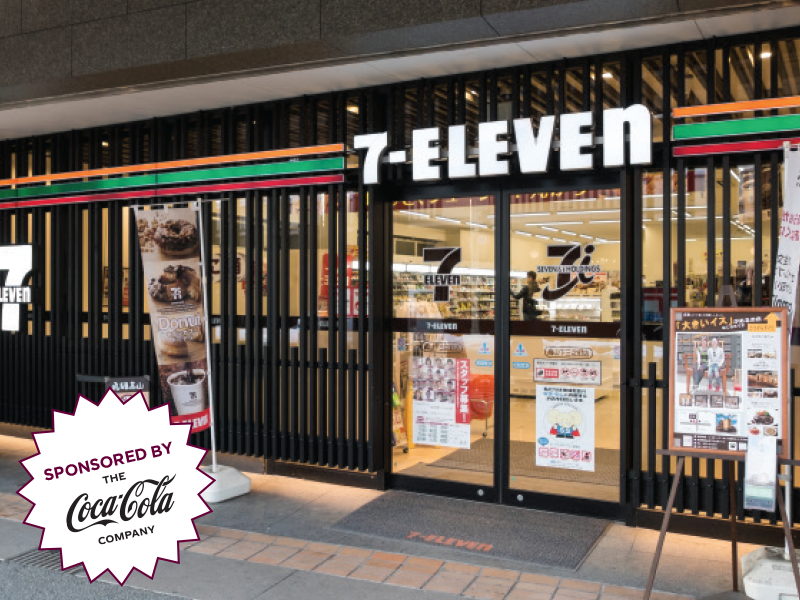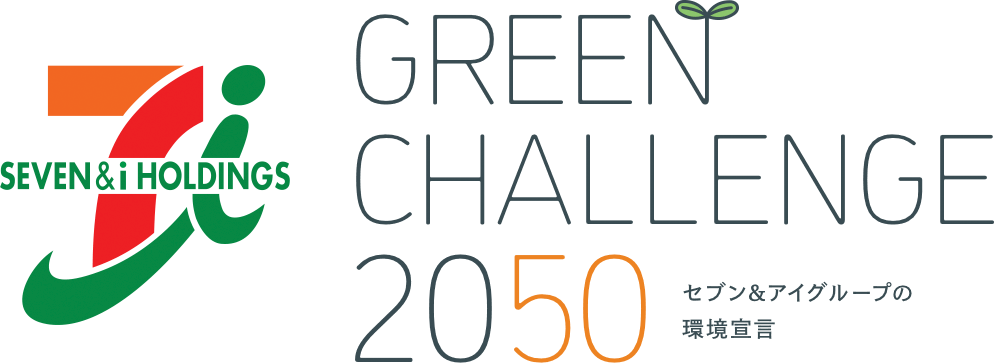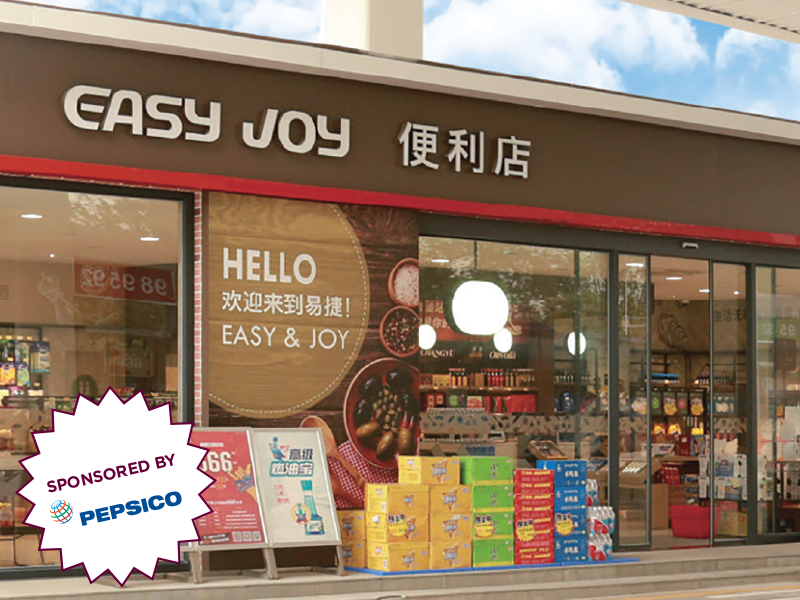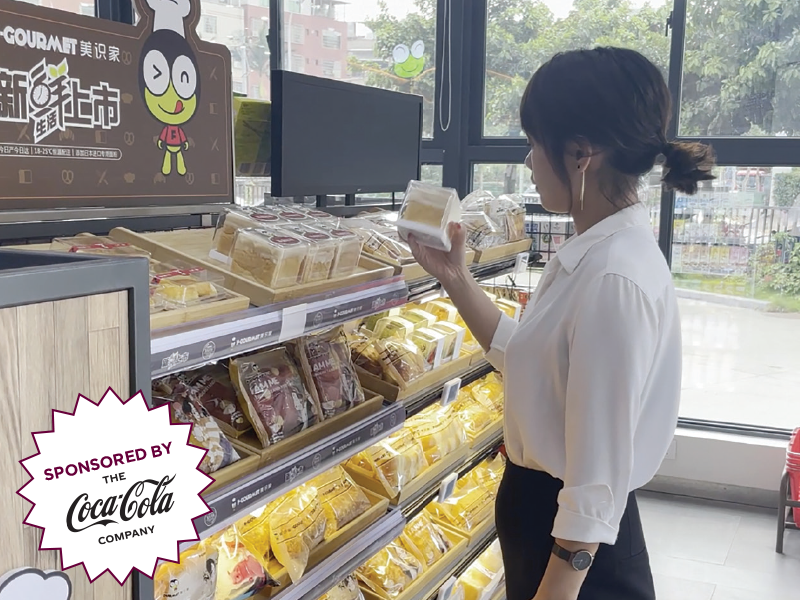The NACS Asian Convenience Retail Awards recognize notable achievements in the Asian retail community. Each year, retailers, industry experts and suppliers gather at NACS Convenience Summit Asia to celebrate industry achievements. This year, due to COVID-19 restrictions, awards were presented during a virtual NACS Convenience Summit Asia, which took place in August. Congratulations to these dynamic winners!
NACS Asian Convenience Retail Technology Award Winner:
Petronas Dagangan Berhad
Malaysia-based PETRONAS Dagangan Berhad (PDB) is the winner of the 2021 NACS Asian Convenience Retail Technology Award. Gilbarco Veeder-Root, a global leader of integrated technology solutions in the retail petroleum industry, sponsored the award.
PDB embarked on its digital transformation in 2018 and continues to enhance its strategy by updating its point-of-sale and back-office systems, as well as implementing open platform with full interoperability and standard APIs. Cross-functional collaborations, consumer data and technological expertise allow the company to solve customer and stakeholder pain points with digital solutions.
For its retail locations, PETRONAS introduced Setel, Malaysia’s first mobile application that integrates fuel payment, retail and loyalty benefits in one platform. It allows customers to seamlessly purchase fuel from their vehicles and pay for items in Kedai Mesra convenience stores with minimal contact. The app also introduced Deliver2Me, a new level of convenience with Malaysia’s first in-car shopping experience, which enables customers to purchase selected items from Kedai Mesra and have them delivered to their vehicles while refuelling. Next, Setel is poised to scale beyond PETRONAS stations and empower retail businesses with its proven solutions.
Additionally, PDB is also rolling out new outdoor payment terminals from Invenco at the station forecourt to provide an interactive and enriching experience for customers during re-fuelling.
Petronas is also known for driving open innovation through crowdsourcing by leading “Technology Challenges” for the global community to seek pioneering solutions and collaborations for the company’s complex business challenges.
Petronas and Microsoft signed a memorandum of understanding earlier this year to empower Malaysia’s digital economy and advance digital transformation across the public and private sectors.
In June 2021, Petronas established two new technology and research centers at Imperial College London and Heriot-Watt University in the United Kingdom to advance technologies in low-carbon and clean energy solutions.
“Petronas is on the forefront of how companies are leading digital transformation strategies within their operations to drive innovation, future growth and advance its workforce and sustainability initiatives on the world stage. Congratulations to the Petronas teams for continuing to deliver leadership and excitement in the digital space,” said NACS President and CEO Henry Armour.
Additionally, China-based Meiyijia received an Honorable Mention for its integrated Meiyijia mobile application.

 Feature image: PETRONAS is the winner of the 2021 NACS Asian Convenience Retail Technology Award. The Malaysia-based company began its digital transformation Tin 2018 and continues to enhance its strategy, including updates to its point-of-sale and back-office systems. Above: Seven & i aims to reduce emissions from store operations by 30% by 2030 and reduce emissions from store opera- tions to net zero by 2050.
Feature image: PETRONAS is the winner of the 2021 NACS Asian Convenience Retail Technology Award. The Malaysia-based company began its digital transformation Tin 2018 and continues to enhance its strategy, including updates to its point-of-sale and back-office systems. Above: Seven & i aims to reduce emissions from store operations by 30% by 2030 and reduce emissions from store opera- tions to net zero by 2050.
NACS Asian Convenience Retail Sustainability Award Winner:
Seven & i Holdings Co.
The winner of the 2021 NACS Asian Convenience Retail Sustainability Award is Seven & i Holdings Co. Ltd. The Coca-Cola Company sponsored the award.
The award recognizes Seven & i for its “Green Challenge 2050” initiative. Launched in May 2019, the environmental declaration establishes goals for 2030 and 2050 related to CO2 emission reduction, plastic countermeasures, food loss and waste/organic waste recycling countermeasures and sustainable procurement. “We believe that reducing waste of energy, resources and raw materials to achieve our goals will lead to cost reductions,” notes the Seven & i website.
Seven & i operates around 22,500 retail stores throughout Japan and interacts with about 25 million customers each day. To help reduce the company’s impact on the environment, Seven & i is working with various stakeholders in the value chain to reduce CO2 emissions caused by energy consumption, reduce waste and promote recycling.
To address CO2 emissions, the company’s goal for 2030 is to reduce emissions from store operations by 30% and reduce emissions across its entire supply chain in addition to its own emissions. By 2050, Seven & i set a goal to reduce emissions from store operations to net zero.
Seven & i is also promoting the reduction of the environmental impact associated with containers and packaging by pledging to make 50% of the containers and packaging used in original products (including Seven Premium) consist of environmentally conscious materials by 2030 and 100% by 2050.
The company’s “Green Challenge 2050” aims to raise the organic waste recycling rate to 70% by 2030 and 100% by 2050, and the amount of food loss and waste will be reduced by 50% by 2030 and 75% by 2050.
“We’re excited to recognize Seven & i as it pursues significant and compelling sustainability strategies that drive long-term growth and set a high bar for how convenience retailers can improve their operational performance, competitiveness, customer perception and staff engagement,” said Armour.
In addition, 7-Eleven Australia received honorable mention for its “cup rescue” initiative, where about 20 million cups have been diverted from landfills. Working with Simply Cups, the retailer is leading the cup recycling revolution in Australia so that takeaway cups can be collected, processed and recycled. After use, customers can deposit their cup, lid or straw into a cup recycling unit, and the stores will arrange to have them recycled.
 EasyJoy by Sinopec China launched a number of community-focused initia- tives during the pandemic. Among them were contactless vegetable sales at more than 6,100 locations. Customers placed orders via app, and c-store staff loaded the groceries into customers’ trunks.
EasyJoy by Sinopec China launched a number of community-focused initia- tives during the pandemic. Among them were contactless vegetable sales at more than 6,100 locations. Customers placed orders via app, and c-store staff loaded the groceries into customers’ trunks.
NACS Asian Community Engagement and Support Award Winner:
EasyJoy
EasyJoy by Sinopec China is the winner of the 2021 NACS Asian Community Engagement and Support Award, sponsored by PepsiCo.
Throughout the pandemic, Sinopec was able to keep its 30,000 Sinopec service stations and 27,000 EasyJoy conveniences stores open for business to ensure stable fuel supplies. It also donated 16,500 liters of diesel fuel and 1,000 drums of construction machinery lubricants to support the construction of hospitals for pandemic patients and free refueling service for ambulances.
In March 2020, Sinopec launched “zero-touch” vegetable sales at more than 6,100 EasyJoy convenience stores in 147 cities in China. Customers could place and pay for orders through the EasyJoy app by Sinopec, while convenience store staff put the vegetables into their car trunk, ensuring a safe shopping experience.
In addition, Sinopec used its extensive logistics network to solve the serious problem of unsalable rural vegetables. As a temporary measure, more than 7,000 EasyJoy convenience stores in 126 cities sold vegetables, helping both farmers sell their produce and residents get daily necessities.
Sinopec and its EasyJoy convenience stores delivered an impressive level of leadership and community engagement.
The company also went contactless at the pump, launching a one-click refueling function option at its nearly 30,000 gas stations nationwide to provide customers a touch-free service. The feature allows customers to place and pay for orders through the Sinopec mobile app or a WeChat mini program.
Since the coronavirus outbreak, Sinopec has also paid close attention to the mental health of its one million employees and joined with more than 380 psychologists and mobilized more than 5,000 Employee Assistance Program (EAP) talents and volunteers to strengthen intervention and guidance for employees by providing them comprehensive psychological support throughout the outbreak.
When the pandemic erupted, domestic demand for medical supplies grew significantly and resulted in shortages of medical supplies such as masks, protective suits and disinfectants. Sinopec took prompt action to resume production and leveraged its industrial, logistics and procurement capabilities to produce much-needed medical supplies and materials.
“Sinopec showed tremendous leadership during the pandemic to support its customers, employees and the global community,” said Armour. “Sinopec and its EasyJoy convenience stores delivered an impressive level of leadership and community engagement that was not only needed, but necessary.”
 Fook Convenience Store sites feature proprietary brands and ready-to-eat foods. Customers can pay via contactless facial recognition or order and pay with a QR code. Food safety is priority. Customers can scan QR codes to find out the origin and expiration dates for products.
Fook Convenience Store sites feature proprietary brands and ready-to-eat foods. Customers can pay via contactless facial recognition or order and pay with a QR code. Food safety is priority. Customers can scan QR codes to find out the origin and expiration dates for products.
NACS Asian ‘Best of the Best’ Store Award Winner:
Fook Convenience Store
Fook Convenience Store emerged as the winner of the NACS Asian “Best of the Best” Store Award, sponsored by The Coca-Cola Company.
The NACS Asian “Best of the Best” Store Award recognizes an innovative and successful Asian convenience store that breaks new ground and sets new innovative standards for the industry.
Founded in 2006, Fook has nearly 10,000 employees and more than 2,000 stores located in Fujian, Jiangxi and Sichuan provinces. Fook is China’s first convenience store chain to integrate office, warehousing and logistics, R&D and manufacturing in the same park. The company is also China’s first enterprise to establish a food bank to prevent food waste and has donated more 100,000 products to people in need.
In the technology space, Fook is constructing a solar-powered experimental farm using hydroponic systems. The company has also teamed up with Shaanxi University of Science and Technology to establish a digitized research institute for food development and a laboratory for safety testing and monitoring, and it has adopted cutting-edge technologies for refrigerated transport with multiple temperature zones in the same vehicle.
Fook Convenience Store sites are open 24/7 and feature proprietary brands and ready-to-eat foods, Kafei Coffee, F-Gourmet, Foodenvy and Snack Bar, for consumers who are looking for complete meal solutions, afternoon tea or a midnight snack.
Through its partnership with JD.com, Fook Convenience Store integrates digital platforms that enhance the customer experience and represent Fook’s commitment to diversifying sales scenarios, as well as enable customers to pay via contactless facial recognition or order and pay with a QR code.
Food safety is also a top priority. Fook stores are equipped with a food safety management system where customers can scan a QR code and see where products originated and when they will expire.
“To be considered ‘best of the best’ is a huge accomplishment, and we’re proud to recognize Fook for redefining the concept of convenience and implementing solutions that deliver real and compelling value to the customer,” said Armour.